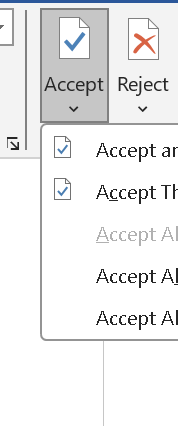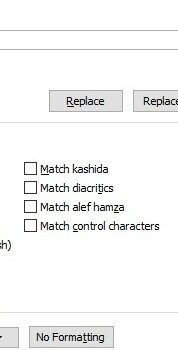What Happens When My Manuscript Gets Edited? Part One: Behind the Scenes of the Editing Process
Sending your story to an editor—especially if you’re new to the process, but also when you’ve been writing a long time—can induce anxiety and above all, uncertainty. What’s going to happen? What shape will the manuscript be in when you get it back? Here’s a behind-the-scenes look at my editing processes. First, I’ll talk about how I make suggestions. In two follow-up posts, I’ll discuss the kinds of suggestions I most often make. You may find this series offers a useful checklist for...
Read MoreLay It On Me: A Quick Grammar Guide to Transitive vs Intransitive Verbs
Today’s blog post is a brief explanation of why a sentence may be incomplete without some additional words. It will also help you figure out how to punctuate dialogue and the difference between “lie” and “lay.” (*Originally coined by the writers of The Simpsons, this delightful word for “acceptable” is now recognized by the dictionary!) Sentences can be very simple: a subject does a verb to an object. I(s) knocked over(v) the vase(o). Photo by Diane...
Read MoreWhat do you mean? A Quick Grammar Guide to Pronoun Referents and Dangling Modifiers
While editing manuscripts, I often suggest revising sentences for more clarity or precision. A common reason is because the original version of the sentence had a “dangling modifier” or an uncertain “pronoun referent.” These terms might seem intimidating, but they don’t have to be. In this post, I’ll offer examples of what modifiers and referents are, why they matter, and how you can make sure they’re working the way you want them to. I’ll use some terminology for those who find the names of...
Read MoreThe Priority Edit
If you think I’m just going to sweep in here and blog again as if several years haven’t gone by…you’re exactly right. Let’s get to it. (What’s been happening? I’ve been doing a lot of editing work with my head in Word files rather than WordPress. Also living my life, volunteering, spending time with loved ones, taking a few cross-country trips, getting through one bout of COVID that could have been way worse—hurray, modern medicine!—far more watching the news unfold in horror than I’d...
Read MoreOpen to new projects!
I visited this blog the other day, probably to get the link to my article “12 Words to (Almost Always) Cut” (which today I’d title something more like “12 Words to (Almost Always) Replace” or “12 Words to Watch Out For,” though with the latter I’d lose the cheeky use of two of those twelve words in parentheses). And to my surprise, dismay, chagrin, and other emotions, I saw the last time I’d posted an update was to tell everyone in...
Read MoreJoin me at the Clubhouse! (Plus, Rate & Scheduling Updates)
To celebrate the release of her hilarious and heartwarming women’s fiction novel (plus WWII survival story) StumpStrong, my client Nicki Pascarella is hosting a series of “Bookclub” talks on Clubhouse. I’ll be joining her the evening of August 12 to talk about “Preparing Your Manuscript for Editing”: how to get the most from working with an editor like me. Preparing for the Clubhouse chat has got me thinking about what elements have led to the best editing...
Read MoreBefore Editing: A Recommended Reading List
Part of being an editor is noticing patterns—the motion of a character arc, the raveling of a resolution, or the fact that the past five paragraphs have all started with the same word. Here’s another pattern: I’ve been recommending certain articles and books to almost every client I work with, year after year. So why not share them here once and for all? These 12 short articles and 6 books delve into the writing techniques I comment on most frequently. Many of them formed the core of my own...
Read More12 Words to (Almost Always) Cut
Strong stories are not necessarily short. They don’t need to be Hemingway-esque masterpieces of bare prose (even Hemingway didn’t always write that way). And it would be hypocritical to argue for only short sentences or short paragraphs when I have to make a conscious effort to write either. But in a strong story, every word counts. And no word is misplaced or ill-chosen. The vocabulary is vivid and usually varied, plus precise (though alliteration is optional). Words do not...
Read MoreCommon edits to improve your writing
A lot of editing and rewriting involves relatively minor mechanical and technical changes. A lot. Not that I’m complaining; making these simple changes is a routine part of my work, and if nothing else it keeps me steadily employed. Many of them are changes I make to my own writing on a second draft! However, I thought it’d be helpful to share my “greatest hits”: the advice I give most often, and make use of most often when revising my own work. If you can apply this...
Read MoreLiving With Imposter Syndrome–Guest Post Live on Fictionvale!
The first mercy of impostor syndrome, in my experience at least, is that it isn’t constant. Instead it attacks at intervals, at moments of either my deepest despair or highest success. Of course success attracts this psychological beastie’s attention: in the grips of impostor syndrome, my jerky brain is happy to dismiss any achievement as a fluke or a fraud. I’ve either tricked people into thinking I can write, or they’ve reviewed my manuscript favorably from pity for someone so pathetically...
Read More








 Therese Arkenberg's first short story was accepted for publication on January 2, 2008, and her second acceptance came a few hours later. Since then they haven't always been in such a rush, yet her work appears in places like Beneath Ceaseless Skies, Analog, Daily Science Fiction, and the anthology Sword & Sorceress XXIV. Aqua Vitae, her science fiction novella, was released by WolfSinger Publications in December 2011.
She works as a freelance editor and writer in Wisconsin, where she returned after a brief but unforgettable time in Washington, D.C. When she isn't reading, writing, or editing (it's true!) she serves on the board of the Plowshare Center of Waukesha, which works for social, economic, and environmental justice.
Therese Arkenberg's first short story was accepted for publication on January 2, 2008, and her second acceptance came a few hours later. Since then they haven't always been in such a rush, yet her work appears in places like Beneath Ceaseless Skies, Analog, Daily Science Fiction, and the anthology Sword & Sorceress XXIV. Aqua Vitae, her science fiction novella, was released by WolfSinger Publications in December 2011.
She works as a freelance editor and writer in Wisconsin, where she returned after a brief but unforgettable time in Washington, D.C. When she isn't reading, writing, or editing (it's true!) she serves on the board of the Plowshare Center of Waukesha, which works for social, economic, and environmental justice.